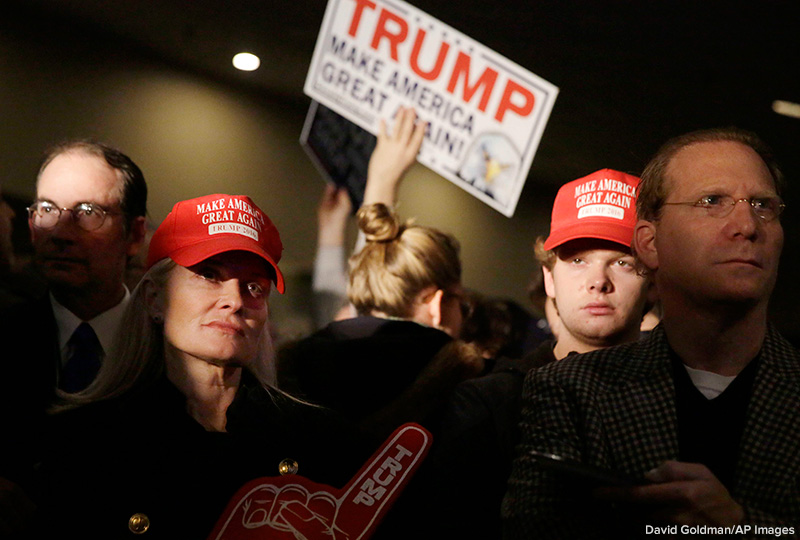
New Hampshire Happenings
Last month, Election Central laid out the differences between a caucus and a primary. Now that we’ve had the first of each in this campaign cycles, let’s look at what happened in New Hampshire and what’s next.
A Brief History of the New Hampshire Primary
Like the Iowa caucus, the New Hampshire primary is considered a “high-stakes proving ground” for candidates. Twice (in 1952 and then in 1968) voters in New Hampshire were influential in causing two sitting presidents to abandon their campaigns. The two presidents?–Harry Truman, whose administration was plagued with internal corruption, and Lyndon Johnson, who was burdened by the Vietnam War.
In 1980, candidate Ronald Reagan lost in the Iowa caucus to George H.W. Bush. Then a successful New Hampshire debate performance followed by a strong win in the state’s primary thrust Reagan into the national spotlight. John McCain was popular in the Granite state, both in 2000 (when he ultimately lost the nomination to George W. Bush) and 2008 (after which he won the party’s nomination but lost the general election). In 2008, even though Barack Obama had come off of a win in Iowa, New Hampshire voters backed Hillary Clinton.
Three communities—Hart’s Location, Dixville Notch and Millsfield—all go to the polls at midnight. The number of total voters does not exceed 100, but they are very closely watched because their results are announced early and because Dixville Notch has a history of successfully picking nominees.
Republicans
- More Candidates Stop Running Not long after showing up (and sheepishly being called on stage) at Donald Trump’s veteran’s event in Iowa, Rick Santorum officially suspended his campaign. In an effort to support someone he believed best shared his values, he announced that he will now endorse Marco Rubio. Rand Paul also announced on Wednesday, February 3 that his fun for the White House was also finished.
- Kaisch Makes Gains While it was no surprise to anyone that Donald Trump continued his significant lead over his competition, Ohio governor John Kaisch broke free from single-digit polling numbers to come in second place, with almost 16 percent. His campaign put a lot of money into New Hampshire and it paid off. He has a strong record in balancing the budget of his home state, but his “sometimes-dour demeanor” has been a weakness in this race so far.
Democrats
- Bill 4 Hillary Former president Bill Clinton has kept a low profile during most of his wife’s campaign so far. But in New Hampshire, he took the stage. While his comments had previously been biographical, Bill has begun addressing his wife’s opponent. He accused Vermont Senator Bernie Sanders of not having a solid plan on health care and said that while they agreed on many issues, the difference was the ability to get things done.
- Bernie, Bernie Bernie After losing by a few tenth of a percentage point in Iowa, Bernie Sanders prevailed over Hillary Clinton by a significant margin (56.9% to 41.1%) in New Hampshire. Like Trump, Sanders is riding a wave of discontent with American politics, but on the polar opposite side of the spectrum. His popularity in New Hampshire likely stems from his representation of neighboring Vermont, so the upcoming South Carolina primary will be a real test.


